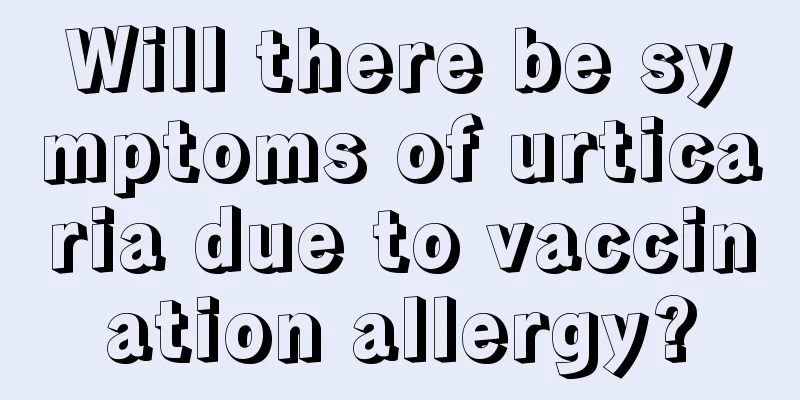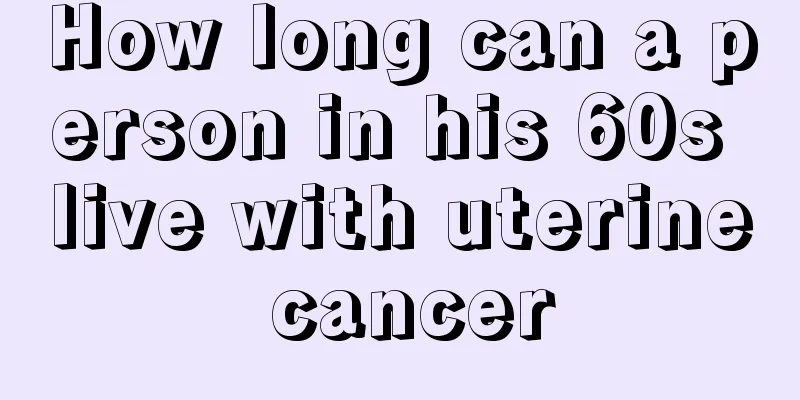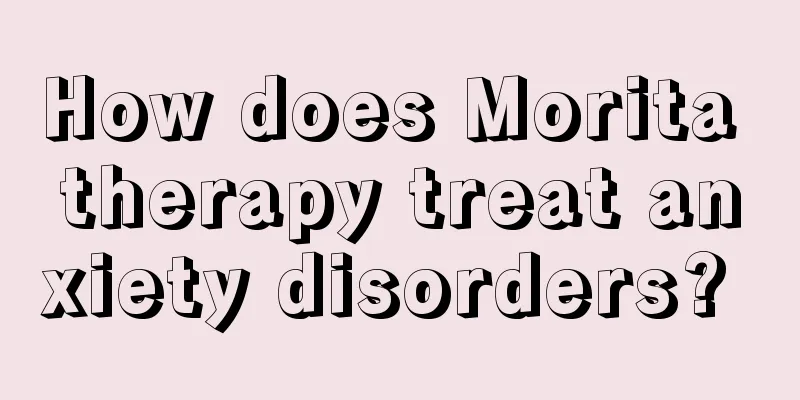Will there be symptoms of urticaria due to vaccination allergy?

|
Children need regular vaccinations after birth, generally within three years of age to ensure that they will not be infected by some bacteria. However, some people have special physical constitutions. After the vaccination, they may have varying degrees of fever, small red spots all over the body, acute viral infection, asthma or urticaria symptoms. These may be symptoms of vaccination allergy and need to be checked in the hospital in time. Introduction It is an injectable vaccine. Vaccination is an effective means to prevent infectious diseases caused by certain pathogenic microorganisms (such as bacteria, rickettsia, viruses, etc.). Humans have used various vaccines to control the spread of diseases to the greatest extent possible. For example, the smallpox virus was basically eradicated after the emergence of the cowpox vaccine. Depending on the type of vaccination, the injection site is different. Most common injections are on the arm, but there are exceptions such as on the buttocks and head. Not suitable for infants 1. If children who are suffering from a cold or fever caused by various diseases are vaccinated at this time, their body temperature will rise or the disease may be induced and aggravated. 2. Children who are recovering from an infectious disease or have a history of contact with acute infectious diseases but have not passed the quarantine period. If you get a vaccination at this time, it is easy to have adverse reactions or make the original condition worse. 3. Children with asthma, eczema, urticaria and allergic constitutions are prone to allergic reactions after vaccinations, especially measles vaccines, diphtheria, tetanus and pertussis mixed vaccines and other vaccinations with strong allergens, which are more likely to cause allergic reactions. Children with a history of epilepsy and convulsions are prone to syncope, convulsions, and shock when receiving vaccinations, especially Japanese encephalitis vaccine and diphtheria-tetanus-pertussis combined vaccine. People with severe rickets should not use polio sugar pills. 4. Children with acute and chronic kidney disease, active pulmonary tuberculosis, severe myelopathy, suppurative skin diseases and suppurative otitis media may experience various adverse reactions after vaccination, which may aggravate the original condition and affect the recovery of the sick children. It must be pointed out that children with congenital heart disease can still receive vaccinations as long as their function is good. 5. During the vaccination period, if the child is feeling uncomfortable, has symptoms such as vomiting, diarrhea, and severe cough, the vaccination can be temporarily postponed with the doctor's consent, and the vaccination can be given again after the symptoms improve. |
<<: What are the hazards of ribavirin to young children
>>: What are the symptoms of intestinal polyps?
Recommend
There is a fatal spot on the neck, so be careful when kissing
Getting married is a great joyous event in life f...
Vitamin B anti-mosquito method
Summer is here, and one problem that bothers many...
There are large areas of red bloodshot in the calves after standing for a long time
Red blood streaks are mainly caused by capillary ...
How to scrape correctly
In fact, scraping is very common in many massage ...
Ways to keep healthy in autumn, teach you how to keep healthy in autumn
It should be said that we have to pay attention t...
Is it necessary to remove wisdom teeth?
Friends who have had wisdom teeth know that wisdo...
Experts introduce nursing methods for gallbladder cancer
How much do you know about the care of gallbladde...
What are the symptoms of liver poisoning
The liver is a relatively large organ in the huma...
What are the symptoms of ovarian cancer
Hello everyone, today we have prepared some knowl...
What are the treatments for pancreatic cancer
Pancreatic cancer is a digestive tract disease. L...
There is a painful lump on the back of my head
It is not uncommon for a hard and painful lump to...
Tips on what to do if your hair isn't straight
Many people envy a head of black and shiny hair, ...
The difference between kale and cabbage
Cabbage and kale are actually the same kind of di...
At how many weeks of pregnancy can I use a fetal heart monitor
The fetal heart rate is relatively important for ...
What is lumbar disc herniation? Pay attention to these symptoms
In the past, patients suffering from lumbar disc ...









